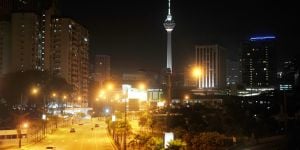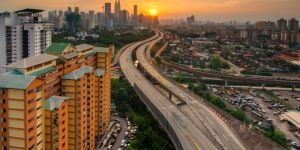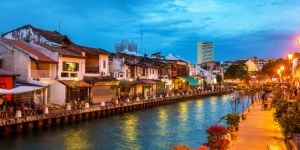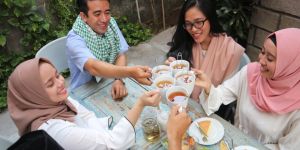The lessons of the crisis in Malaysia
Last activity 18 June 2020 by ladivo779
1257 Views
18 replies
Subscribe to the topic
Post new topic
Hello everyone,
While there is still a certain amount of uncertainty in our lives, the situation seems to be beginning to change in Malaysia and globally.
We have had to show courage, tenacity and even ingenuity in many areas, in the way we work, in being alone or with our families, in how we look after our children, or we channel our stress and emotions in the face of this health crisis that has turned our daily lives upside down.
We wanted to hear your feedback on these last few months in Malaysia.
What will you remember from this very special period?
Have these unusual times allowed you discover things about yourselves or your loved ones?
Did this period lead you to make changes in your lifestyle that you would like to maintain in the future? If so, which ones?
How do you plan for the future in Malaysia? Have the last few weeks caused you to review your priorities or certain projects?
Thank you for your contribution and take care of yourself,
Loïc
Why avoiding MM2H and staying away.
Could you be more specific?
Well, no one could have saw the abrupt government change coming, but how the Malaysia gov't acted towards MM2Hers was appalling. You want folks to retire there and put their money there, yet you won't let them in even if mandatory isolation quarantining is done? That is BS. I will finish up my processing of my MM2H application only because of sunk costs, but there is a real possibility that I stay in the Bay Area instead and only visit the inlaws occasionally. Malaysia was starting to look quite promising and then it reverts back to its old ways.
Agreed. MM2H requires a fixed deposit, and visa holders are encouraged to invest further funds (property, car), and to make Malaysia their home. But recent events have shown its limitations, i.e. it's a sort of long-term tourist visa. It definitely isn't a residence visa.
The Covid-19 pandemic and the response of many nations in (largely) closing borders to all non-residents has underlined the risks of setting up home in a country (Malaysia or elsewhere) without the right of residence. I wonder what other situations might arise that would result in denied entry or the visa being withdrawn.
Thank you Loic. Hope you are well and staying healthy.
It has been very different experience.
On the positives, I experienced more focus and productivity. I feel more comfortable WFH now (and partly look forward to do more of it in future).
I was reading a bit more which helps me to relax and refresh.
On the flip side, it has been hard to manage the working hours because they increased by at least couple of hours each working day.
I got quite a few invitation to webinars but I could not join in most of those. However, I managed to conduct one of my webinar over a weekend for our APAC CFO community which was quite engaging experience.
Crisis situation brought the team together and we were able to manage execution well.
Screen time has significantly increased and now I look forward to off time to for digital detox in every opportunity and holiday.
I really miss the gym and swimming and taking my daughters out to park.
It was good to be home physically with family though not able to interact more because of kids online schooling routine and my work calls. It was good experience for kids to get an extra hour of sleep in the time slot of their usual school commute of 1 hour. But unhealthy part was they were spending more time on digital devices (schooling and on line games with classmates).
I think I will miss the comfort of refreshing afternoon naps when the office routine resumes.
Who says this is all ending? Its not at all. I think whatever lessons there are to be had arent in yet and wont be for a while.
Along the way though, expats can see that when there is trouble in their foreign country they cant depend on govt to look after them in a way they like or makes sense to them. They get to see that responses to trouble, good or bad, arent meant for them and they are largely or completely cast aside. Its something to think about wherever one chooses to go. You become more on your own than ever and decisions and choices can only be done within the limitations or framework of other people you dont know or care about.
This is really bad when one has made substantial investment in a foreign place because one incorrectly thinks it gives them special treatment or consideration. Even before the virus I didnt think something like MM2H was a good idea because like everything in Asia, its all smiles until the money has changed hands and then its bye-bye to you. This doesnt mean not to invest or plant yourself in something like MM2H but to look at something much more closely than one might at home.
I think the govt has handled this poorly which has led to unnecessary and huge problems. Any idiot can order a lockdown but many countries are showing poor leadership after that, to later undo the decisions and the damage caused. Maybe to others the govt here has done a fantastic job, it depends where you are seated at the table.
Im not MM2H, im still working. I sell products to 15-20 countries and around 15 March the post abruptly cut off international parcel shipping and Ive been dead and locked in the house ever since. Malaysia blamed other countries for their unwillingness to receive packages but this was a total lie. At first I wrote it off to postal and airport staff having been sent to lockdown but this wasnt the case. There is no help, guidance or anything. I havent asked for Embassy help to go back home because what would be the point since its still lockdown in either place.
My challenge is how to live without income while others face other kinds of challenges. For me, the pressure is rising everyday while others who are not in financial risk share with me that portion of the problem involving unhappiness and depression of a lockdown. Thank god im not sick with something on top of everything.
Lesson? As usual, have a Plan B. To make a real move to a country you have to go all-in, no half measures but doing so forces you to abandon alternates that might otherwise save you in a crisis. Plan Bs can be made but not so easily when the rest of the world is in the same boat. Good discussion for this thread.
I dont know what expats are left in the country or what problems they have but im definitely here to help if I can. Are we reduced to needing to watch the movie, Grapes of Wrath, for guidance now? I dont know, MAYBE!
To me, the lessons of the crisis reveal a few very important things:
1. While the Malaysian Embassy here in Brussels (that is where I am stuck!) has been helpful, their hands are tied. I agree with most of you that I find the MM2H quite disappointing in that I have been staying there for more than 15 years, and yet I am not even treated as a resident. Until now I am still stuck in Brussels as it is not possible for me to get a swab test here - which is a requirement before we land in KL. I have written in for a waiver but till date no reply from either the Embassy or MOTAC. Lesson learnt : you cannot depend on the MM2H program too much.
2. Whatever anybody says - you need a good amount of liquidity and cash. Being stuck in Brussels for 3 months is not good for my cash flow. Turkish Airlines still not flying to KL as yet.
3. Plan your "Plan B" - I will be looking at Philippines, Chiangmai and Vietnam to consider my retirement program. On the European sector, I actually have found that living in Europe has its own great benefits and am considering staying on in one of the European countries.
Goodluck to all of you!
Victor
Man, that sucks!!!! I mean, how hard is it to just quarantine the incoming MM2Hers (granted, assuming flights were available) and just follow up on them or make them check in for symptoms or not. Seriously. If anything, don't you want these folks spending money back at home instead of in another country?
Sooner or later, if this kind of "hospitality" continues, everyone will frown on the MM2H program for being just a sham and money grab. Yes, it was never ever advertised to give you citizen equal footing but come on!!!!
VWC wrote:Well, no one could have saw the abrupt government change coming, but how the Malaysia gov't acted towards MM2Hers was appalling. You want folks to retire there and put their money there, yet you won't let them in even if mandatory isolation quarantining is done? That is BS. I will finish up my processing of my MM2H application only because of sunk costs, but there is a real possibility that I stay in the Bay Area instead and only visit the inlaws occasionally. Malaysia was starting to look quite promising and then it reverts back to its old ways.
Just curious about what the old ways were. Was MM2H in the past much better? I read a lot about MM2H a couple of year ago in another forum and had the impression that MM2H participants were kind of happy. But some changes in recent MM2H requirements as well as the change of government make me worry about how MM2H program will evolve.
From the beginning, I understood that it is not a permanent residence visa they are giving out, but simply a long-stay visa which is issued by the Tourism Department. Requiring a fixed deposit may help bring some money to their financial systems, but that's not much. And one can withdraw them if he/she exits the program.
What I never understand is why the government does not want to issue a proper long-term residence permit (with limitations such as enjoying the state benefit systems and no rights of voting). With such a permit, I believe most participants would consider long-term stay and investment into property, spend more time in Malaysia, consume more and use pay more for health care. Is more money what the government want from people applying MM2H? A tourist-type visa does not give participants any security and actually discourages long-term stay, consumption and investment.
I have a feeling it has more to do with the government generally speaking not wanting foreigners to kind of take over if you will the country. There seems to be this practice of protecting the Malay or native people, so they get the cushy government jobs and school entrance requirements are way easier or non existent for them. The recent change in the government, essentially back to the old ways, is concerning. I think people were really encouraged when the old man won and hopes of less corruption and a move toward democracy was in sight. Now, not sure.
Certainly, the way the government treated MM2Hers during Covid was not only telling but could very well doom the MM2H program from really taking off. Yes, Hong Kongers will probably still come but other folks with options may seriously look elsewhere. The Malaysian government really shot itself in the foot by how it acted.
VWC wrote:I have a feeling it has more to do with the government generally speaking not wanting foreigners to kind of take over if you will the country. There seems to be this practice of protecting the Malay or native people, so they get the cushy government jobs and school entrance requirements are way easier or non existent for them.
I agree. Malaysia and a couple of neighbouring countries always have this concern of protecting native people. And they are particularly "cautious" about people (particularly businessmen) with Chinese ethnic background before of the past success in their countries.
During bad economic cycle, however, not just Malaysia but most governments will review their migrant policy, to try to protect the interests of the majority (for the economic good of their own people or simply for the votes from the majority). Examples are "American First" and BREXIT, and all the trade wars going on these days: more political than constructive economic strategy.
However, MM2H is targeted mainly at people over 50 and it restricts even part-time working there. The impact to the local employment market should be insignificant. And most people from HK or Europe would see the average income in Malaysia far much lower than what they could earn back home. They probably come to Malaysia to retire or to enjoy life for some years.
Pat87 wrote:However, MM2H is targeted mainly at people over 50 and it restricts even part-time working there. The impact to the local employment market should be insignificant. And most people from HK or Europe would see the average income in Malaysia far much lower than what they could earn back home. They probably come to Malaysia to retire or to enjoy life for some years.
Well, according to articles like the one I have linked here, the multiplier effect of the MM2H program is not exactly insignificant on Malaysia's economy. It does indirectly create plenty of jobs.
While I understand the desire/want/need to protect its own people, Malaysia does have this problem where there is rampant overbuilding of high rise condos that sit empty because the masses there in general can't afford them. Guys, were you sleeping all semester in Econ 1? Supply and demand, people!!! My god, when I went there last year to check out Malaysia, I airbnb'd in nice condos with security and infinity pools for like $20-30 US dollars a night. And, the places were practically empty, all to myself. So, while the government recently reduced the min amount required for foreign property buyers, let's be honest, it is not nearly enough. The Malaysian government better address the black eye the MM2H program has received as of late with folks not able to return to their homes. Malaysia is in for a lot of hurt if the fragile government leadership in power does not start producing and coming up with ideas that draw interest to their country. At the end of day, are you or out, Malaysia, for foreigners and their money?
https://www.theedgemarkets.com/article/ … e-malaysia
I am not an economist but I do believe the Multiplier factor is pretty significant. I have been renting for the past 15 years (and not a month in arrears!) and my general expenses run around 8 - 10k (RM) per month, and if you multiple that by the number of MM2H here, it is sizeable.
VWC wrote:...
Well, according to articles like the one I have linked here, the multiplier effect of the MM2H program is not exactly insignificant on Malaysia's economy. It does indirectly create plenty of jobs.
... And, the places were practically empty, all to myself. So, while the government recently reduced the min amount required for foreign property buyers, let's be honest, it is not nearly enough.... https://www.theedgemarkets.com/article/ … e-malaysia
When I talked about insignificant impact, I was thinking about the jobs taken up by MM2H participants from the local market, i.e. negative impact on local employees. And yes, with the money spent in Malaysia, the local people surely can benefit.
The property market there is definitely unhealthy. While the property price may still be very affordable for many applicants (compared to the price level back home), it is way higher than local Malaysian average. What is worse, they have over-built but are continuing to launch new projects even during this pandemic!
I have observed, as an outsider planning to move to Malaysia, that many "luxury" condos were purchased by buyers from countries like China who rent them out mainly for airbnb-type short stays. People looking for long-term stay would not choose a condo with tourists who come and go and with few permanent tenants. The results are poor property management and maintenance (because of low occupancy), nearby shops closing one by one because of insufficient customers,.... For newly completed projects, I have read and even seen by myself the poor quality of the buildings. Even renowned developers have to cut corner. Selling price of some projects after completion may drop below the launch price....
Under MM2H, foreigners are not supposed to be working so I think that there is not a big significance on local employees at all.
New property launches are quickly bought up by mostly rich locals and some foreigners. Yes many of them, especially if well located, are unaffordable for locals. That is no different to saying the majority of lower to middle income Brits cannot afford to live in central London and need to commute from 50 miles away each day because they cannot afford to live in central London. Properties that are launched with a cost below MYR1 million could not be bought by foreigners but many of them are sold out quickly during the launch phase where buyers get early bird discounts etc. And it is perfectly normal for the majority of locals to purchase property 'out of town'. That is the same in every country and city.
The property market is unhealthy for who? Definitely it is stagnant and has been for several years already, but investors in property can still find foreign (or local) tenants willing to rent their properties. You just need to be careful where you purchase.
As for Airbnb, different condos have different rules. Many condos do not allow the owners to do airbnb. Some forbid it and get a few owners who still do it, but they are subject to restrictions. Others condos allow it, but airbnb has a lot of risks and negative points for owners so that even though they might think they will make more money than renting out long term, they could end up making a lot less money than with long term tenants. One of my condos allows airbnb and there are something like 30 or 40 units that are doing it, but I chose not to and I still have no problem at all renting my unit out to long term tenants. Again, it depends on which condo you are talking about. But in anycase, if the owners needs to do it then it's up to them. They expect to earn more as long as their unit is rented out well and they could earn up to 30% more doing airbnb, but obviously their income drops close to zero when things like coronavirus happens.
There are good and less good or poor property management companies. I have fired property management companies in the past and have hired better ones, same for security companies etc. I don't think low occupancy has got much to do about it. Same goes for maintenance. If the condo sold out then maintenance fees will always be paid or the owners will be sued (I have done that before too) and the management will nearly always win.
If a condo was not fully sold out prior to completion and still has a lot of units available, then it is unlikely it was built by one of the top ten developers. These days, if I wanted to buy more units, I would choose those with many residential units, office blocks and shopping mall and very close to an MRT or LRT station and fairly close to downtown. Taking a 30 year mortgage means easily repaying your monthly loan with left over.
Yes true, selling price can drop below the launch price, especially if the condo was a very expensive one. It's much better to buy low to mid priced condos because your asking rent is acceptable to more people. If you buy the expensive ones there are far less people that can afford to pay the rent.
But in my opinion, if investors chose carefully, they can still do alright in this stagnant market.
Just my two cents.....
Victor Lau wrote:I am not an economist but I do believe the Multiplier factor is pretty significant. I have been renting for the past 15 years (and not a month in arrears!) and my general expenses run around 8 - 10k (RM) per month, and if you multiple that by the number of MM2H here, it is sizeable.
The multiplication effect of money on the economy is often expressed as "the velocity of money" (a strange name, though), i.e. the effect of money supply on the gross GDP, or
velocity of money = gross GDP divided by Money Supply M1 or M2
(M1=money in circulation + in current account, M2 = M1 + money in saving account).
Some recent figures from the internet:
for USA: approximately, M1 money velocity = 5.3, M2 money = 1.4
for Malaysia: approximately. M1 money velocity = 3.2, M2 money velocity = 0.8
The question is: why is the velocity of money is Malaysia so low, especially M2 velocity??
Usually, M2 velocity should be more than 1, at least in USA for the past many decades.
Where does the money go? most money earned in Malaysia is put in saving accounts?
in just a few saving accounts of some people???
Any real economists there who can shed light on this?
Good stuff as always, Shill88. If you don't mind me asking (perhaps again, I forget) did you yourself live in a landed property or condo high rise complex when in Malaysia? I plan to go there when I am able to of course to finish up the MM2H process and scope out the various areas for possible purchase. Do you think my grand idea of buying a landed property spread for my future generations of nephews and nieces (there and here) to enjoy is a good idea or not? I don't have kids, so I wouldn't mind giving them a nice spread to visit or live.
Sure, freehold landed property is always a good investment long term, although rentals are relatively low compared to those of condominiums. I only ever bought condos because the rents could pay the mortgages, whereas with landed properties (I only ever really looked in Bangsar) the rental income wouldn't have covered it, but if you are planning to live there yourself then it's good to buy landed. So if you plan to buy several landed properties then if you are borrowing money be sure that the rental income covers the loan repayments. Obviously you'd need as long a repayment term as possible to make it more easy. If you are buying with cash then no problems.
There are good and bad things about buying a condo. The good is that you can get good facilities and security and often have lots of friends living in the same complex. The last condo I lived in had a large pool, fitness centre, 2 squash courts, salon, gym, jogging route, 2 tennis courts, laundry and a restaurant that delivered to your unit. The bad things were that the condo was old (but well maintained) and the Developer owned a majority of the units and therefore controlled the Owners Committee and made all the decisions irrespective of what the other members on the Committee wanted. In fact, the owner owns a sizable chunk of Bangsar. That's why I resigned from the Committee and sold the apartment. But that condo was always pretty full and easy to rent out.
But of course if you plan to live in a landed property or buy then it is always a very good investment long term. Many foreigners prefer to live in condos because of the facilities and the security.
Articles to help you in your expat project in Malaysia
 Driving in Malaysia
Driving in MalaysiaYou are moving to Malaysia and want to drive for work or travel there? Follow our guide!
 Kuala Lumpur's neighbourhoods
Kuala Lumpur's neighbourhoodsKuala Lumpur is a real megalopolis, surrounded by suburbs and neighborhoods so different from each other that they ...
 Buying property in Kuala Lumpur
Buying property in Kuala LumpurWhen you plan to move to another country or another city, your first concern is undoubtedly where you are going to ...
 Internships in Malaysia
Internships in MalaysiaAre you a student or recent graduate who wishes to develop your expertise while experiencing a work environment ...
 The Malaysian lifestyle
The Malaysian lifestyleMalaysia is such a melting pot of geographical, cultural and social diversity that there is something for ...
 Phones and Internet in Malaysia
Phones and Internet in MalaysiaMalaysians are known to be social media addicts, so there's no shame if internet access is one of your main ...
 Pregnancy and childbirth in Malaysia
Pregnancy and childbirth in MalaysiaIt is not always very easy to give birth to a child when you are far from your country and the support of your ...
 Expat death in Malaysia
Expat death in MalaysiaThe loss of a loved one is always a painful ordeal, but also often complicated for those left behind, especially ...
Find more topics on the Malaysia forum



